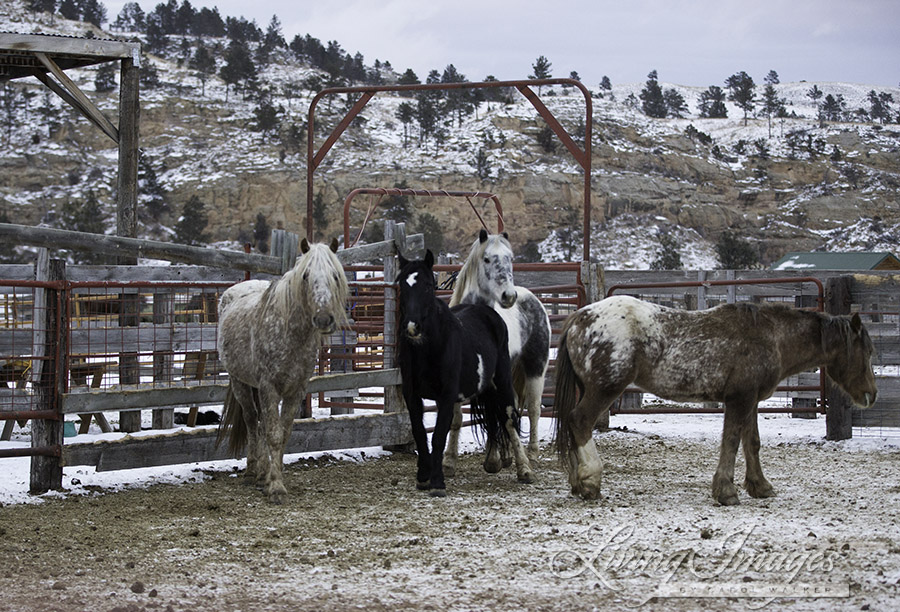
Wild Horses: The Adobe Town Horses Arrive at Black Hills Wild Horse Sanctuary
January 15, 2015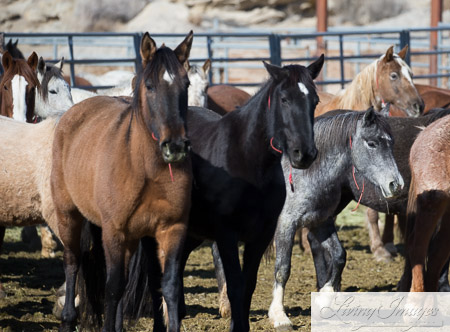
Wild Horses: Checkerboard Roundup Wild Horses Now Available at Rock Springs
February 26, 2015I have been visiting and photographing the McCullough Peaks Herd in northern Wyoming since the summer of 2004. In June of 2005, I met a plucky, curious yearling colt with extraordinary markings who I later heard was named Tecumseh.
Tecumseh and his family spent their time in the Red Point Area of McCullough Peaks, which is the area most easily accessible from the main road. Sometimes bands of horses would be visible from the highway, and locals and visitors have enjoyed visiting and following the activities of the horses in the herd. Locals and the BLM give names to the horses. Over time, as I got to know more and more horses in the herd, Tecumseh has always been one of my favorites.
As Tecumseh grows older, his father Tucson kicks him out of the family band, and he is on his own. As he gets a bit older, he begins trying to win a mare of his own. The stallion Medicine Hat did NOT appreciate his efforts, especially since he had just very recently won a mare for himself.
In the spring of 2009, a fateful year for the McCullough Peaks Herd, Tecumseh succeeds in winning a family for himself. That summer I had no luck spending any time near them, as Tecumseh was nervous about holding onto his family, and spending time outside his normal territory, away from other bands.
But 2009 was memorable for another reason. The BLM had issued a Scoping Document for removing horses with a helicopter from the McCullough Peaks Herd Area in October, with a plan to give mares the birth control drug PZP and to skew the sex ration of the herd, leaving 60 stallions for 40 mares. During the roundup, no attempt was made to keep the families of wild horses together. As the horses entered the trap, stallions were separated from mares, foals from mares. The lucky stallions chosen to remain were released, and the mares that were to be released were treated with PZP and also released. To spread the horses more evenly across the horse range, horses were released in many different areas of the Herd Area.
When I returned in summer 2010, I was astonished to see that Tecumseh had won back two of his mares and an old childhood band member, Legend. Despite being small in stature and only 6 years old, Tecumseh had a family again, when older and bigger and more experienced stallions such as Washakie, Warbonnet and Indigo, who had had huge families before the roundup were alone and fighting over mares.
He also had two new adorable pinto foals, Taurus, a filly and Savage, a colt.
Things were not all smooth sailing for the young stallion, however. I watched as a group of 5 families rested in the morning, and around them 10 stallions looking for an opportunity circled the families like sharks. Periodically there were scuffles and fights, and the atmosphere was very tense. Normally in a herd of wild horses, the sex ratio is approximately 50% mares and 50% stallions. This new skewed dynamic had not been studied by the BLM to determine the impact it might have on the social structure of the herd. I watched it cause a lot of strife and injuries, and some mares that were exhausted from being chased. The effect on young foals can not have been good.
In the next two years, some of the former band stallions won small families again, such as Indigo, Washakie and Medicine Hat. There were still many more bachelor stallions than usual.
After the roundup in 2009, the local group Friends of a Legacy works with Wild Horse and Burro Specialist in the Cody BLM office to use the 1 year PZP birth control drug to keep the herd numbers in check. Their common goal: no more helicopter roundups. Tricia and members of FOAL are out each January and February darting the mares. 2011 was the last year that there were many foals in the spring, and one of my very favorites in Tonkawa, the last surviving foal of Tradebead. His outgoing personality and striking looks are very similar to his dad Tecumseh.
In January 2012 the herd is over the Appropriate Management Level, and so this time the BLM uses bait trapping to remove a small number of young horses. This method of capturing wild horses, using the “bait” of hay and horse treats is far more humane and less disruptive to the horses – they are not driven for miles and frightened by helicopters, and their families remain intact. There are also far fewer injuries. I was hugely relieved to find out that Tonkawa was left on the range – I am certain that this young stallion will make a wonderful band stallion as he grows up.
In April of last year, I was watching Tecumseh’s band and noticing that he seemed on edge, and kept moving his family around. This was not characteristic behavior, as Tecumseh is usually rather laid back, and curious about visitors near his family. I was enjoying the antics of Tonkowa and his younger brother Rebel, and thinking that this will probably be the last time I see Tonkowa with Tecumseh’s family, since he was now of an age to go out on his own. Little did I know it would also be the last time I saw Tecumseh with his family!
I found out that a week after I left, Tecumseh had been injured and lost his family to Mesquite, a big black stallion a year younger and probably 200 – 330 pounds heavier than Tecumseh. No one could find him. I was very concerned, and hoped that he would survive.
When I went back to the herd area in June, I was able to find Tecumseh’s former family in the gorgeous dawn light at a waterhole, led by Mesquite. The girls were clearly not happy about this change in leadership – I saw gentle Legend kicking at the other mares as Mesquite drove them assertively one way and another. Micromanagement was not popular with the mares, but Mesquite clearly felt that he needed to solidify his position. Not only Tonkawa but also Rebel was missing, clearly having been kicked out by Mesquite.
As I drove over the hill, I was thrilled to see Tecumseh. He looked battered and was limping heavily, with a big front knee, but he was alive, and staying near his former family. I had hopes that he would recover and win them back.
Last week I drove up to the Herd Area in the snow, hoping to be able to photograph some of the horses in the snow, if I were lucky enough to be able to get out on the roads without getting mired in a snow drift. The first morning I found Tecumseh, and he was with his sons, Tonkawa and Rebel! I was so happy to see the three of them together. And best of all, Tecumseh looks fully recovered, no limp, running easily.
Nearby, I also saw Mesquite and his family. The mares looked very settled with him now, and I think it is unlikely that Tecumseh could win them back from the much bigger stallion. It was sad not to see Tradebead – the older mare had passed away over the summer, and she will be sorely missed.
But who knows? I think Tecumseh may have other plans!
Last year there were four foals that survived in the McCullough Peaks Herd Area. Even if you find the use of the one year PZP for birth control controversial, consider this fact – the McCullough Peaks Herd is one of the only herds not currently being targeted by the State of Wyoming and the BLM for helicopter roundups and removal. For that I am very grateful.

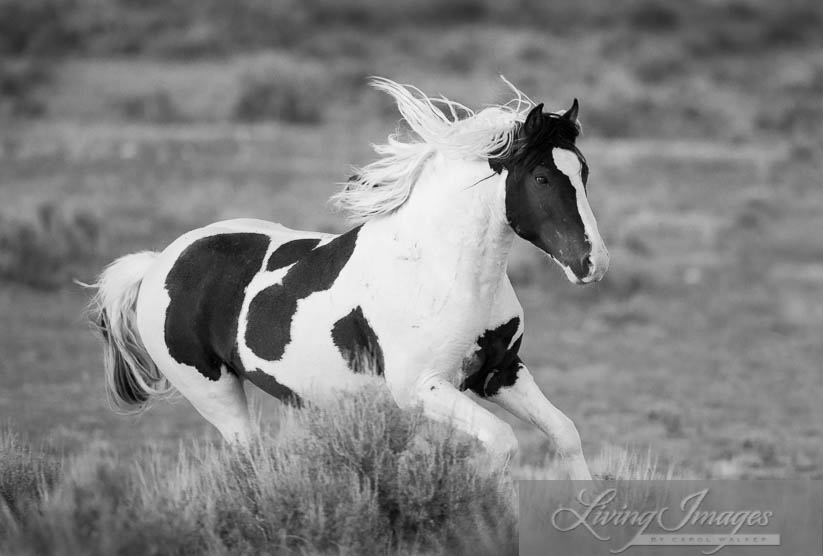
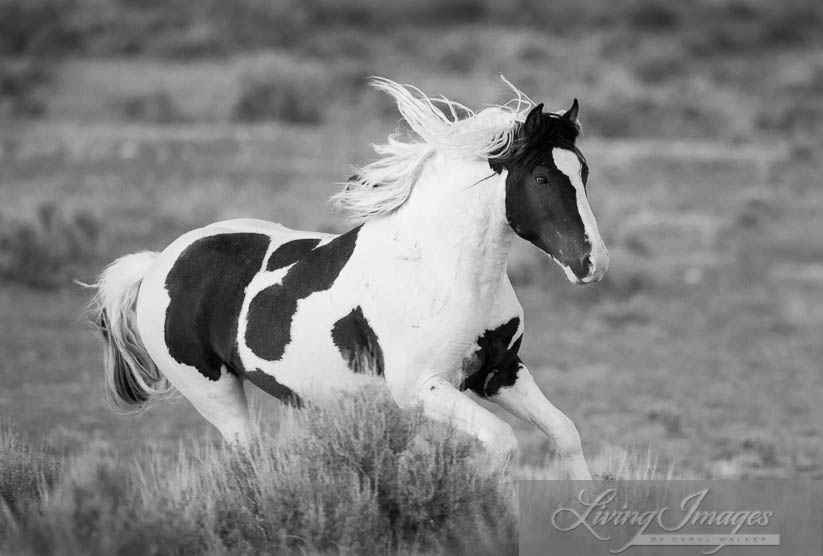
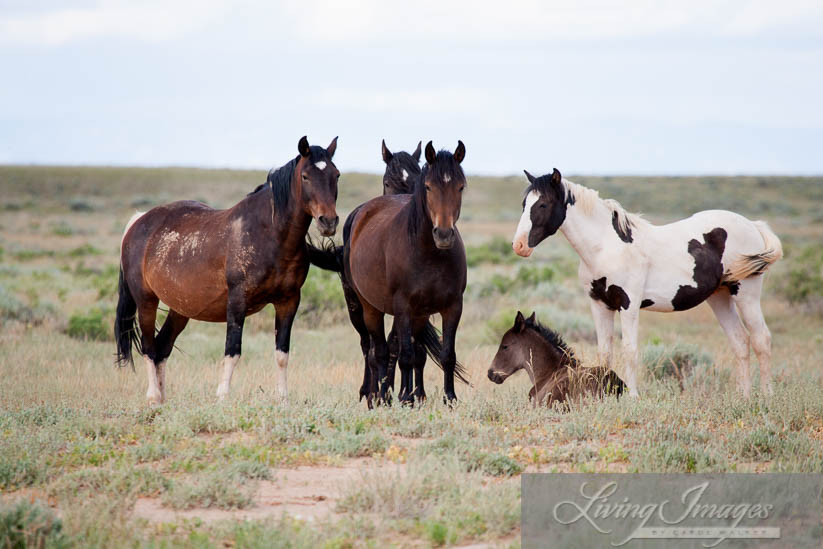
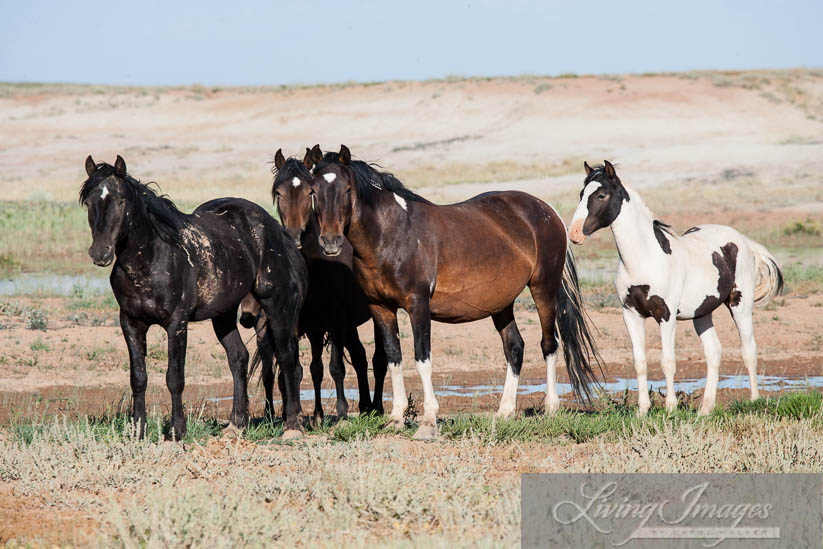
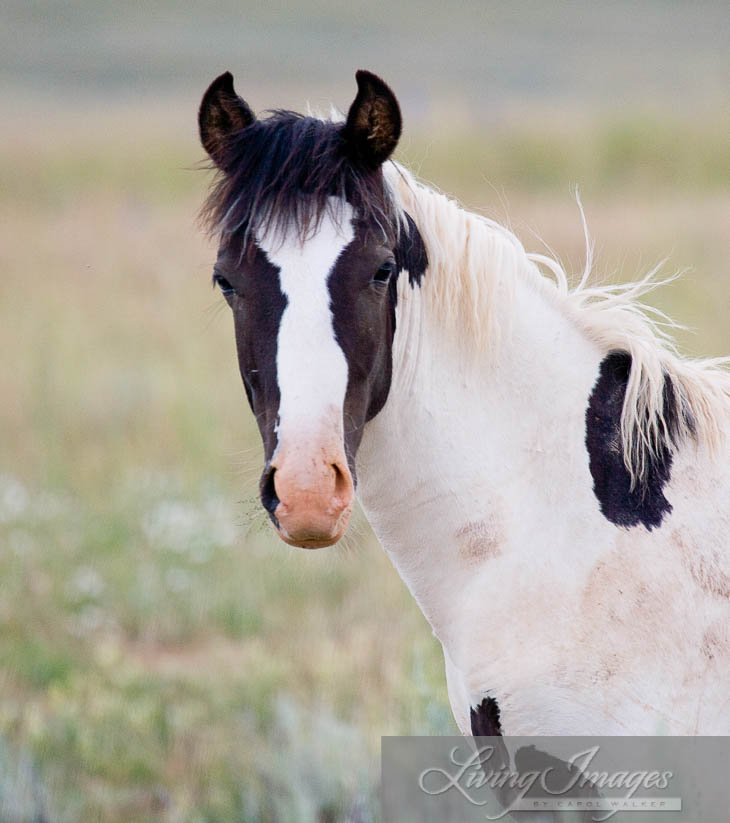
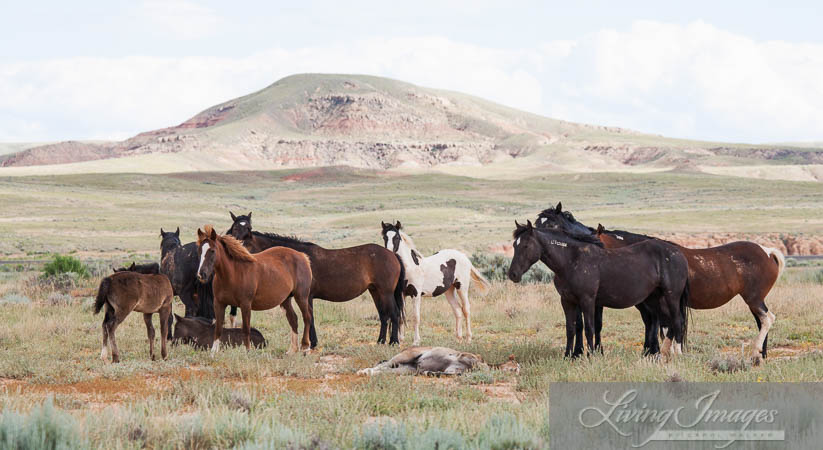
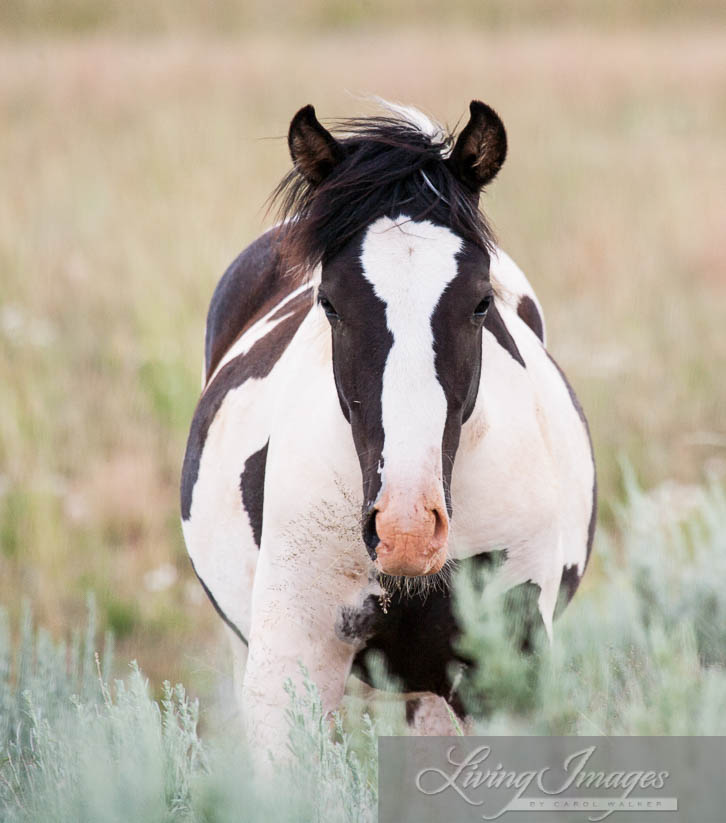
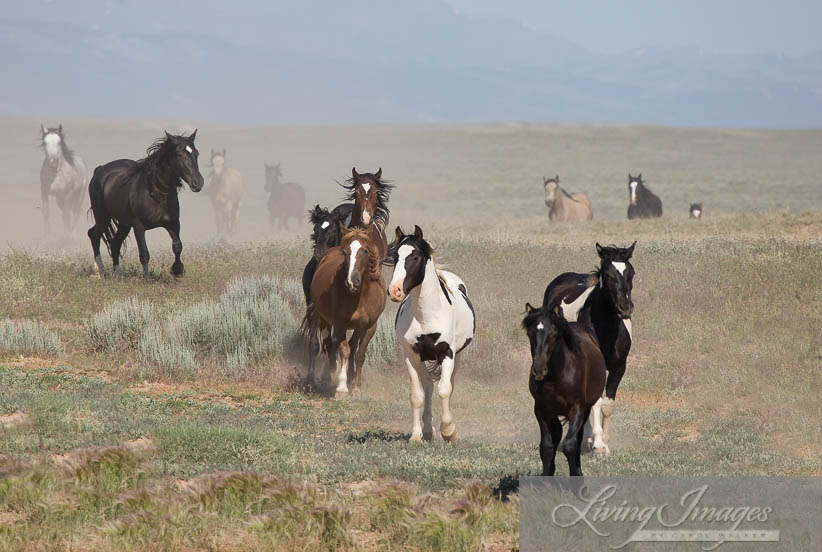
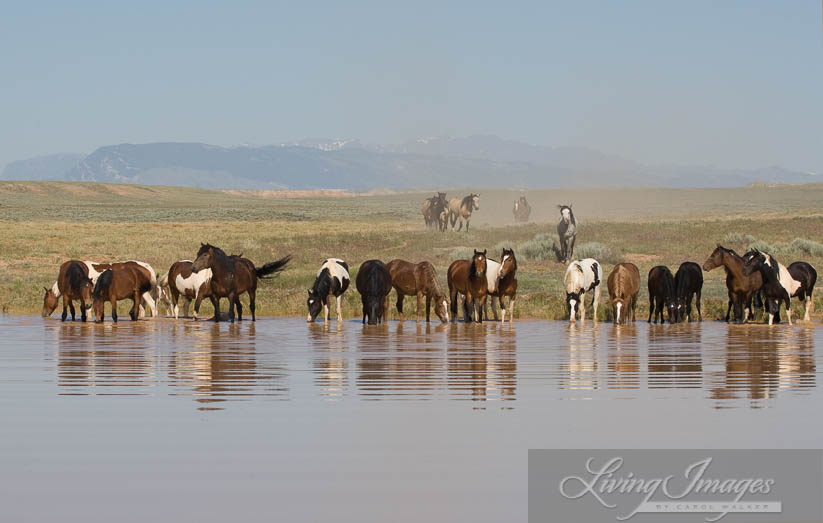
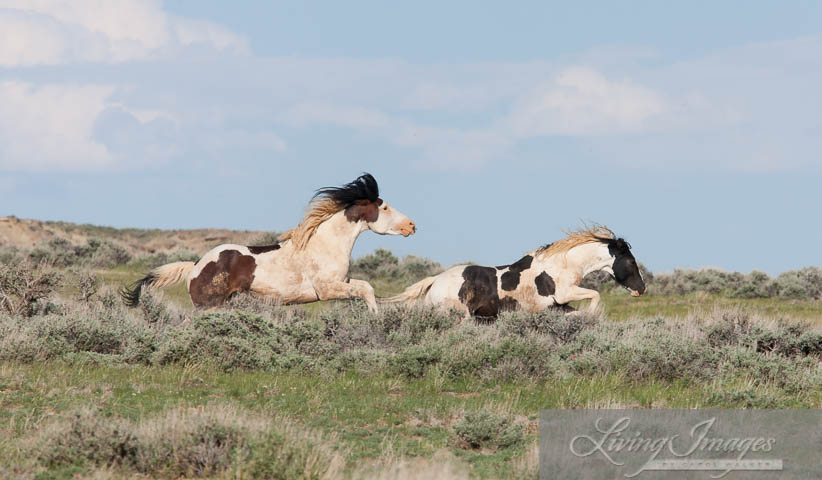
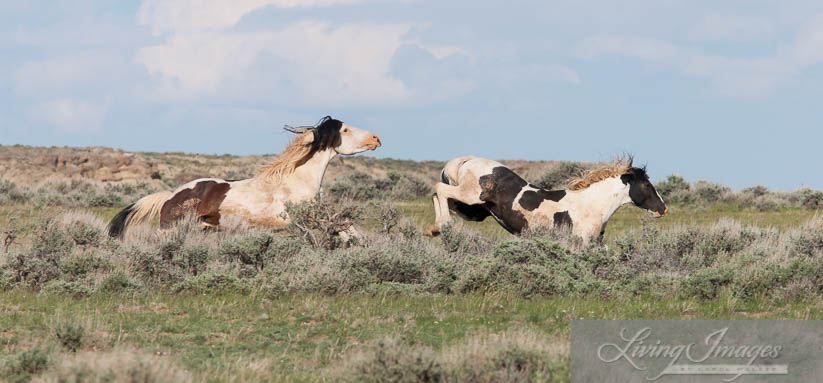
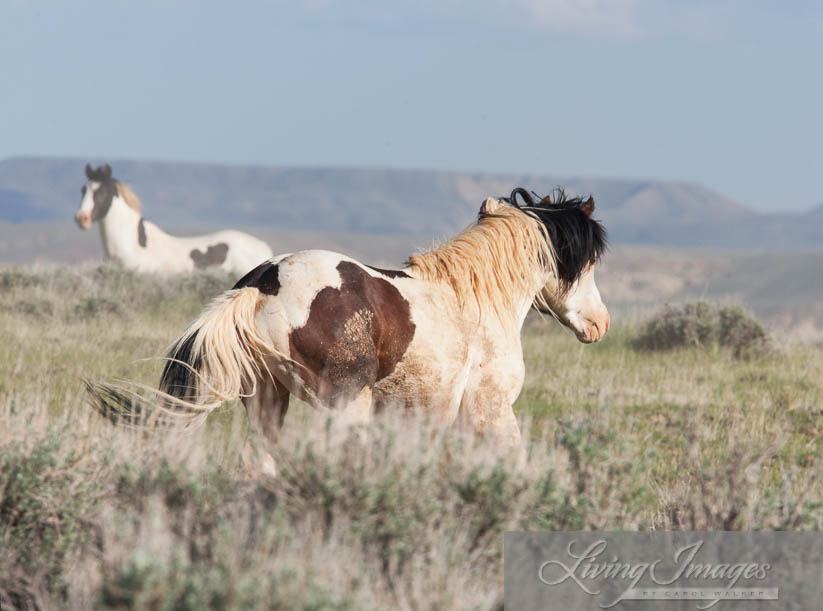
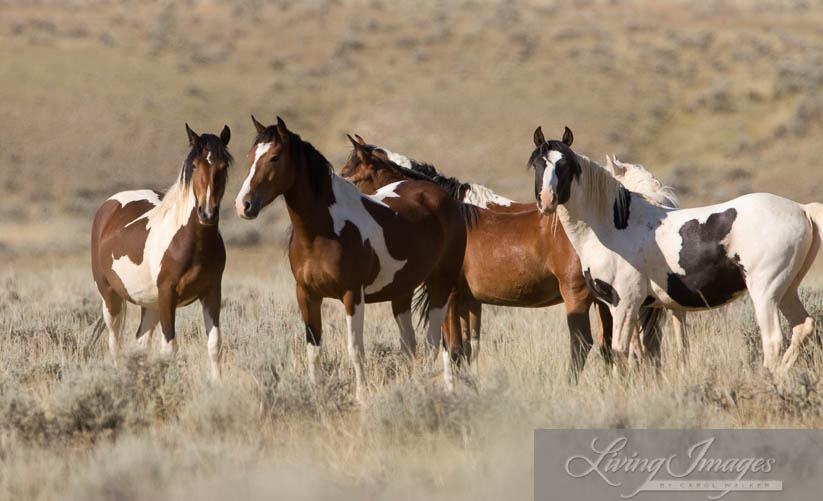
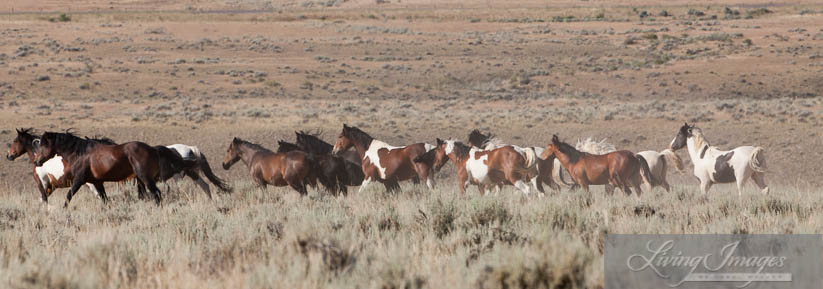
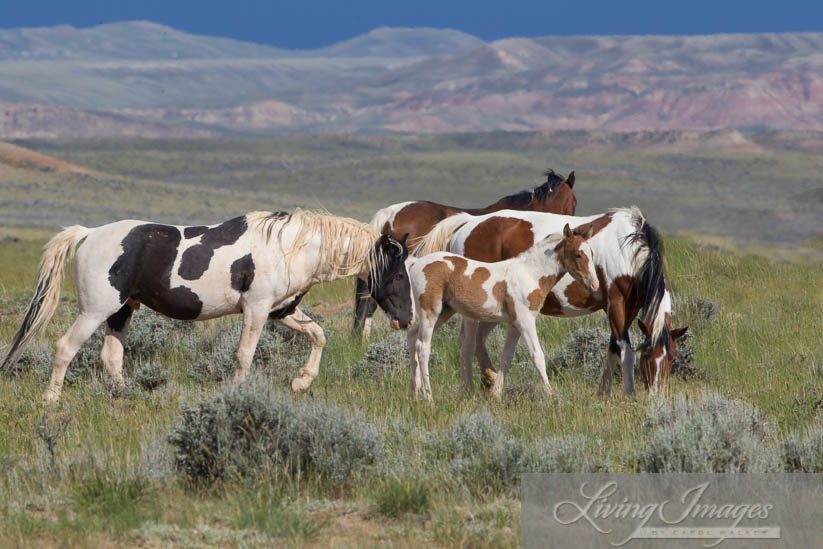
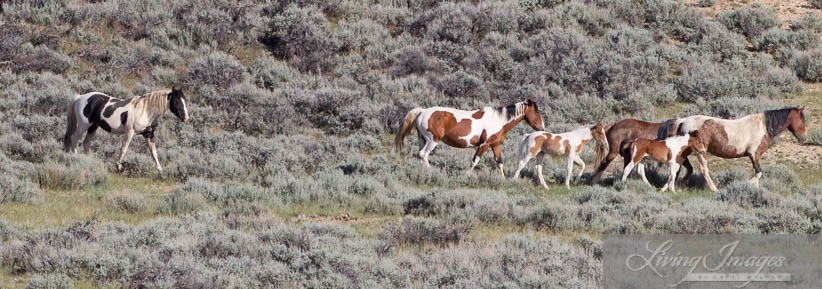

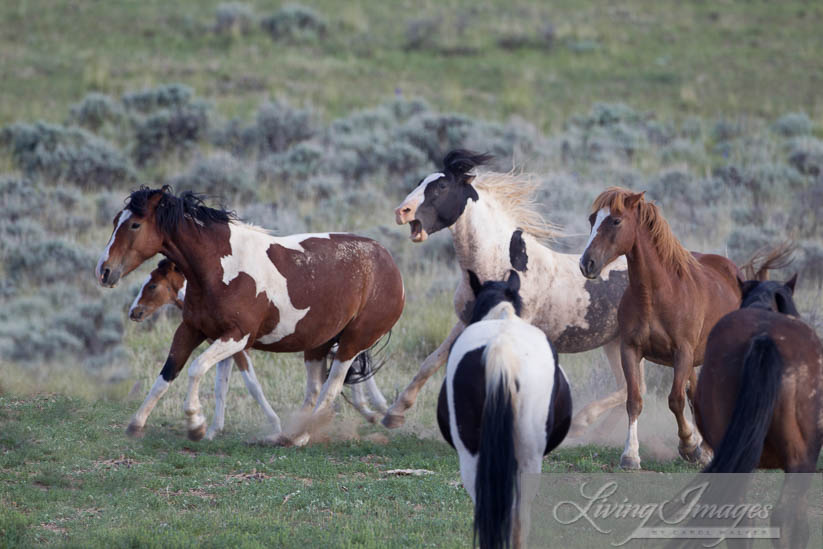
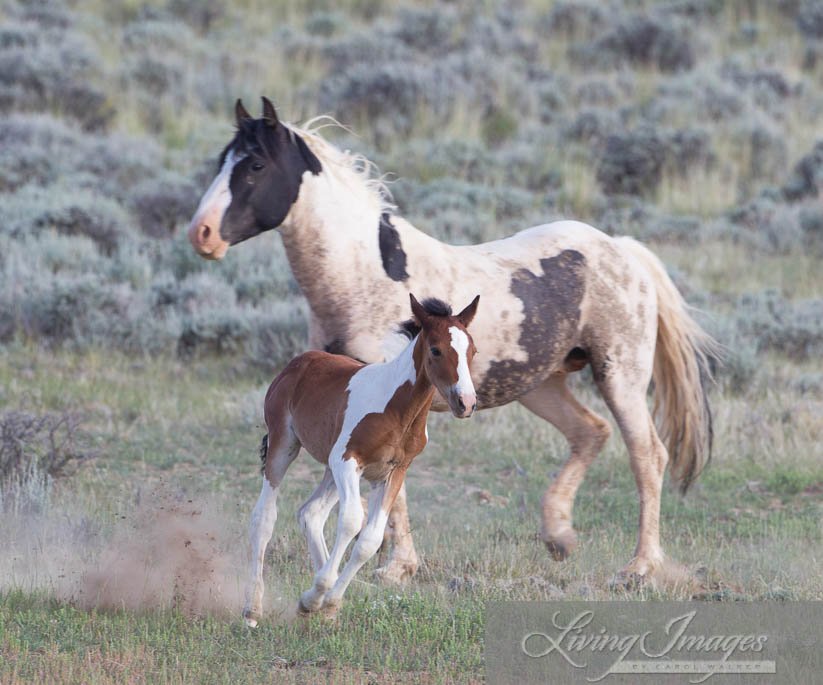
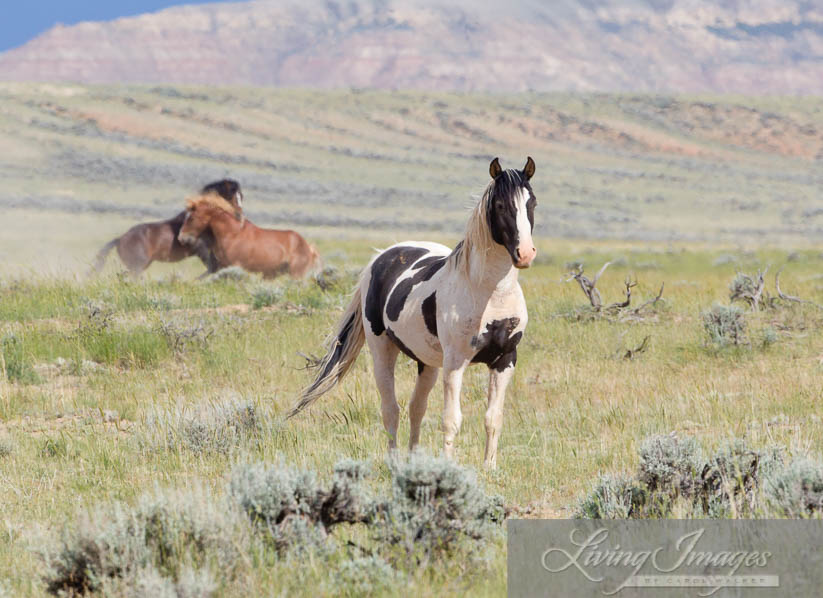
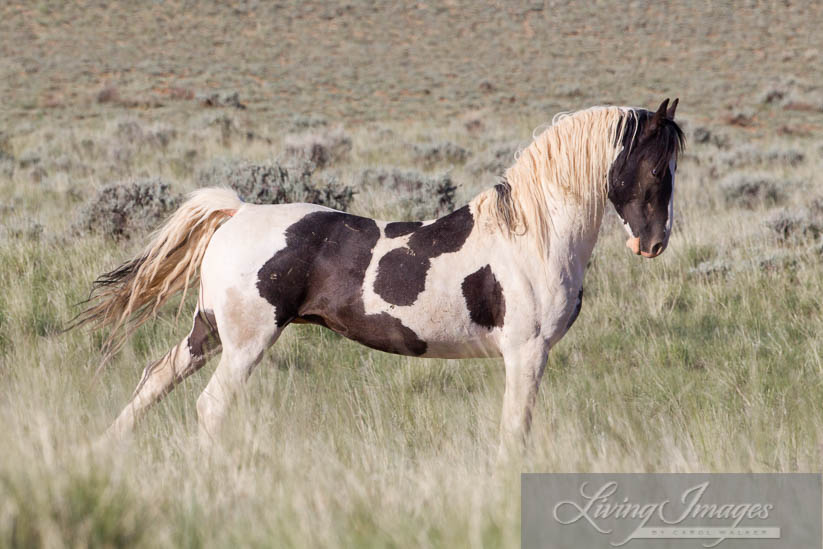
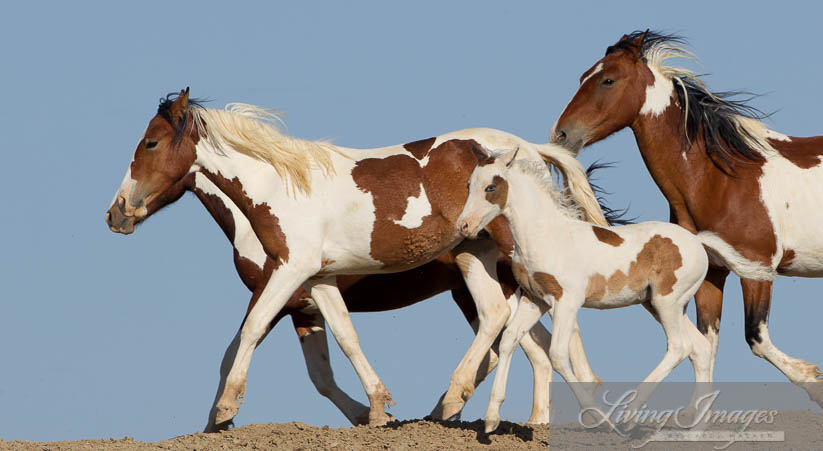
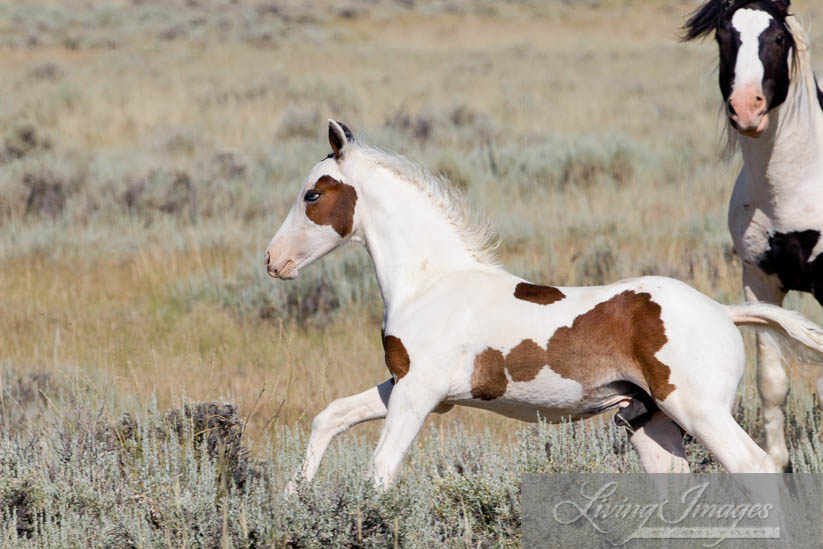
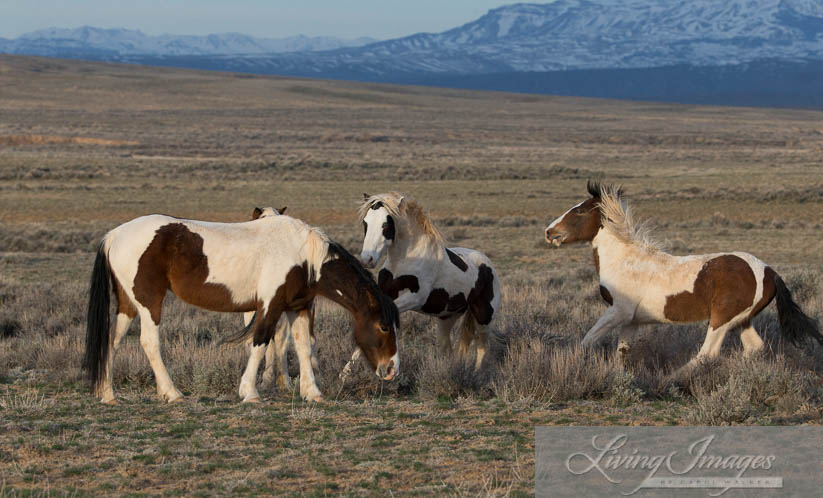
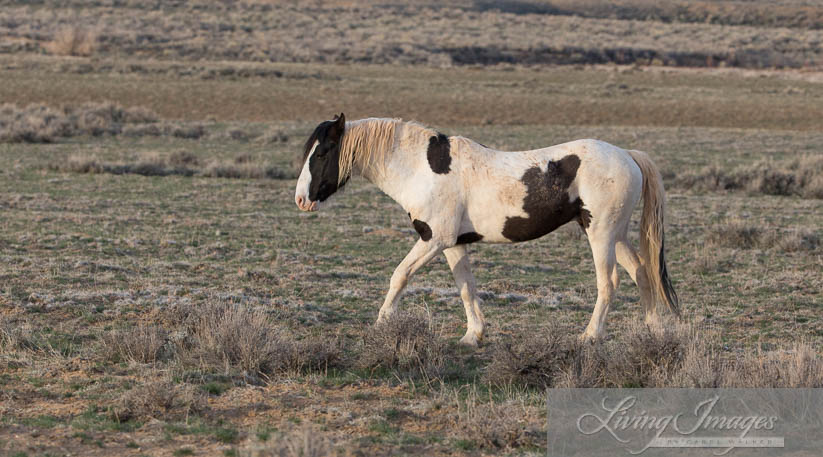
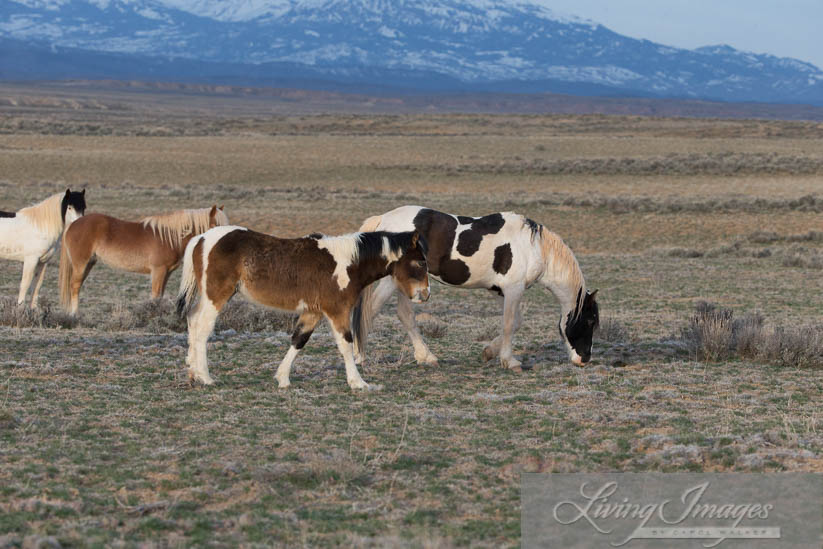
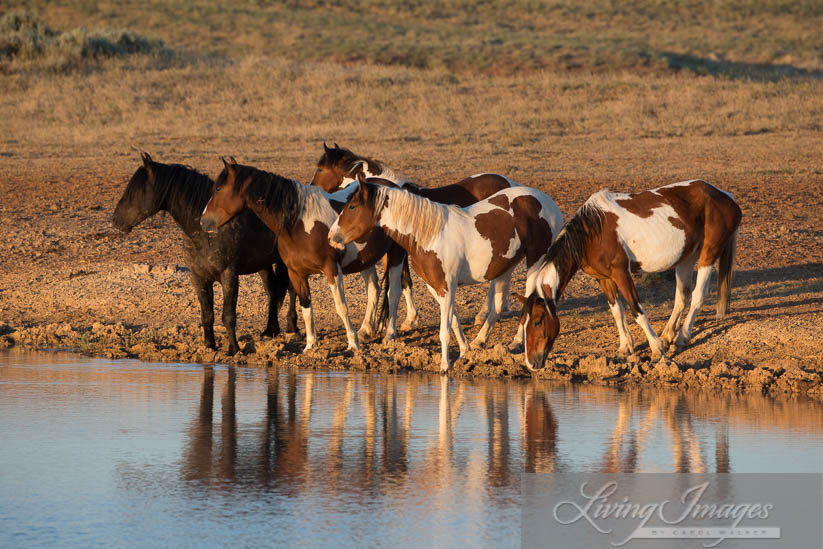
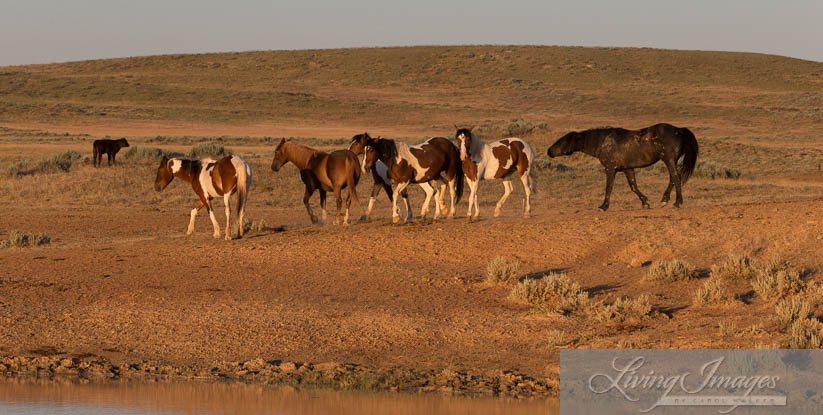
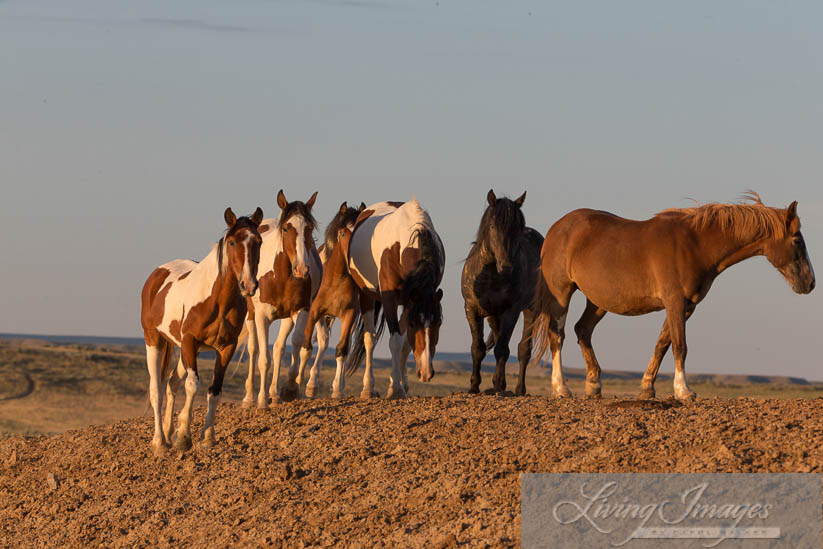
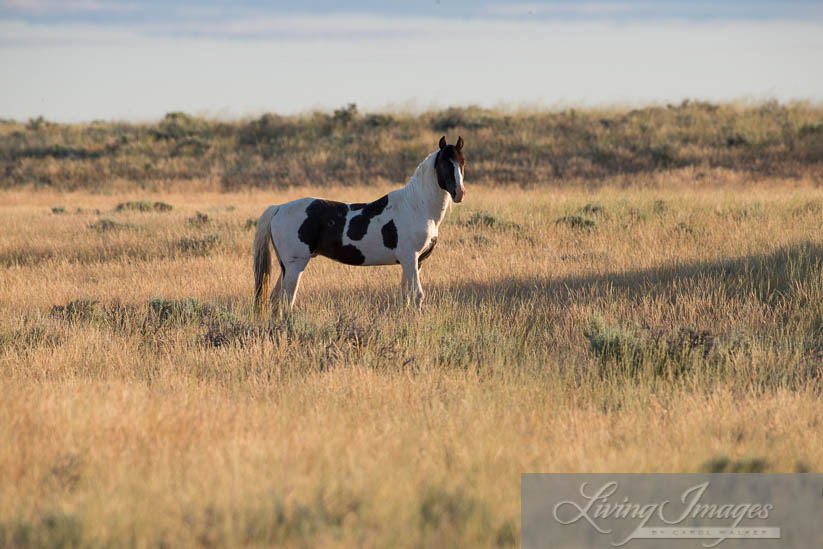
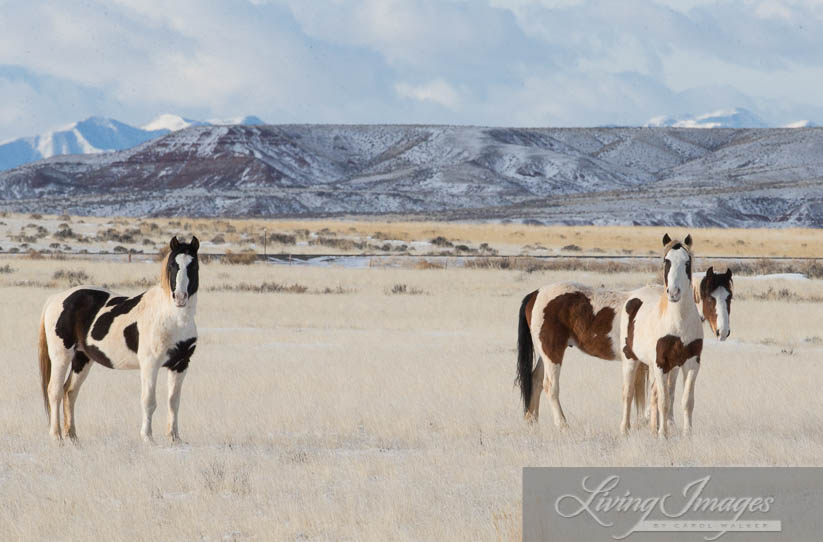
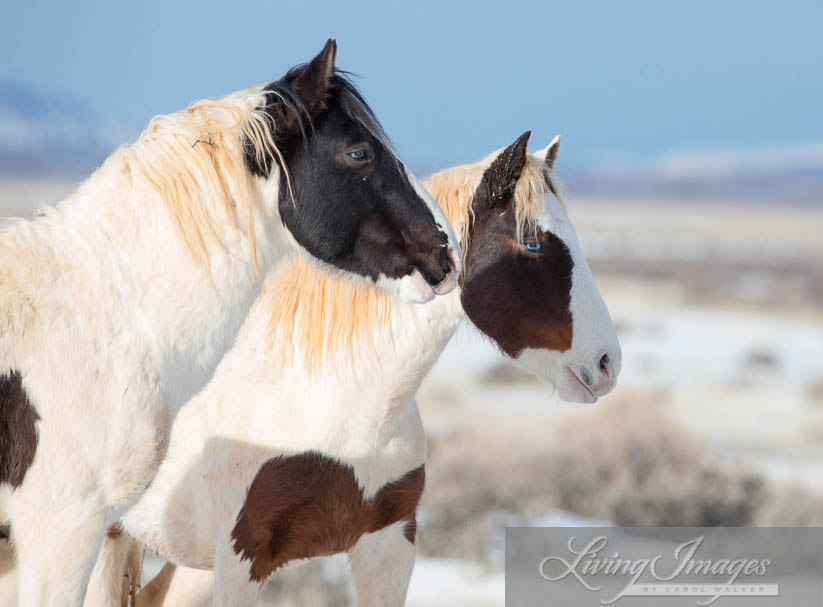
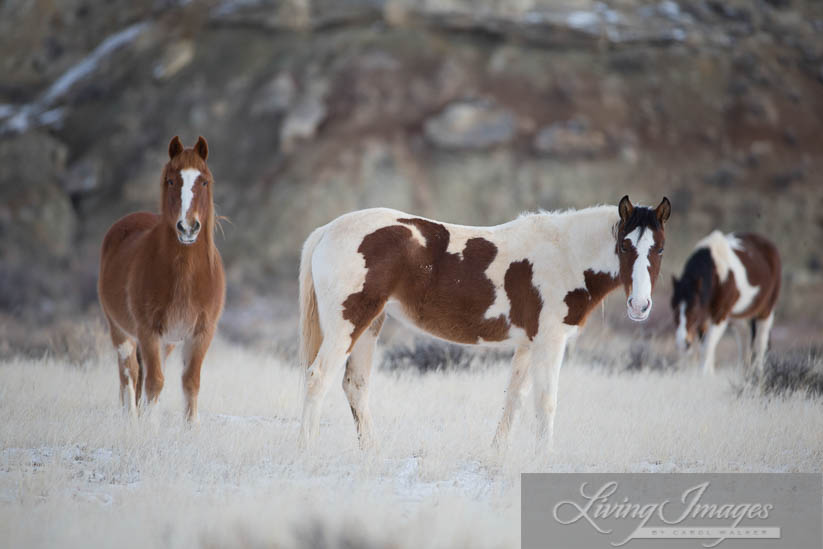
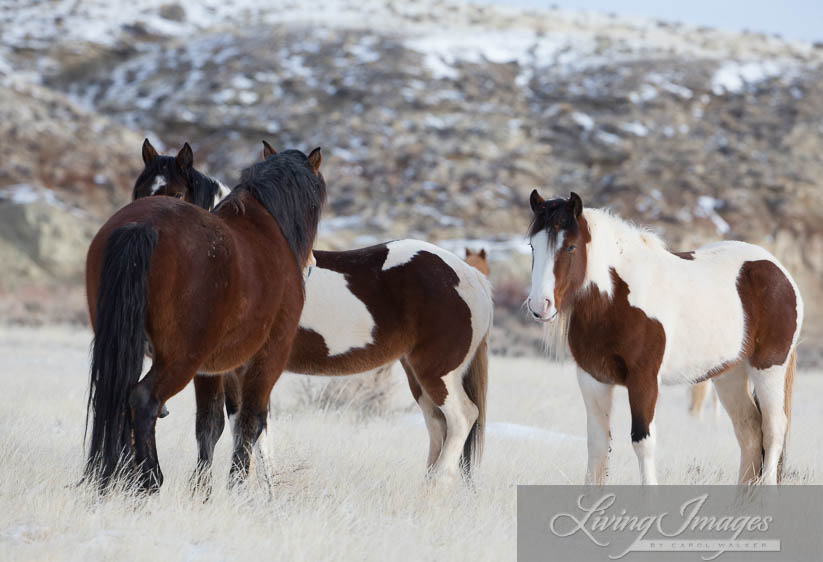
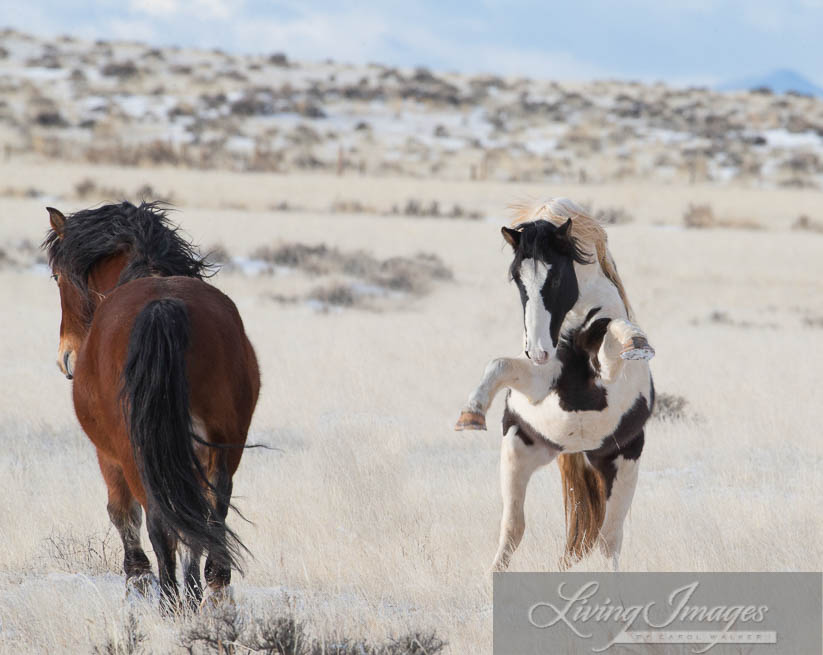
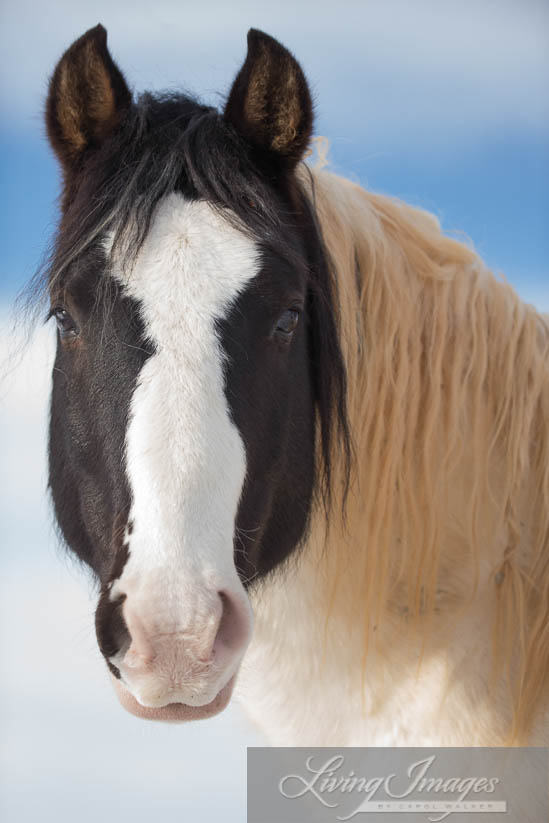
6 Comments
The work you do here – documenting these horses, their ancestry, families and personalities – is so important.
One of the biggest challenges we face is illustrating them as something other than faceless, four-legged stick figures.
And I have to agree: Almost anything that would keep them on their ranges beats the hell out of the alternative. It’s only through documentation and field research like you’ve done that brings them out of anonymity and into the minds and hearts of the people who treasure them.
Loved reading this post, we were there in 2010, and got to view a large number of these beautiful horses. We will back in May, hopefully, will get to see them again. Blessing to you and all those who work so hard to keep them safe.
I agree with all that Lisa said. Thank God for all you do to help these precious horses. I treasure every picture and word that you share with us.
you know carole , i admire you so much , braving the cold -freezing temp.s . being able to be out and among such beauty and history. i will also be so glad when this regime is out of office . i seriously think this u.s invader in office has so much contempt for americans that this played right into the assoc.s hands and with the horse hating crowd already in place — just think in the last two and a half years they have really over worked themselves a far as the amount of horses taken off the range . and i pray that we will be over looked this year on the horses being taken off the range. they are still having killing derbies in idahoe . quite a few places,really . just makes me sad. then there are foa and others winning a reprieve in nv.i hope it goes further but am ready for the let down . you know judges are wishy -washy.just stopped by to tell you what a great job you do and thank-you. h/v/d cindy
Their numerous array of fruits additionally tie them right into a wider web of fauna.
I was very pleased to have Carol tell me about her blog and to find out more about Tecumseh,one of my favorite among ” her” stallions… and May I say thank goodness that the Appeals Court ruled in favor of these wonderful wild horses. I spent my whole life loving and living with herd animals like horses,llamas,alpacas,goats and sheep and giving birth control meds to and or sterilizing these splendid creatures from which we can learn so much is ridiculous and cruel!!! If the Almighty put them here on earth for us to love,learn from and enjoy leave them to heck along!!
Best Regards,
Bryn